IT WAS one of the worst-kept secrets of South African politics, yet Agang SA leader Mamphela Ramphele’s description of her decision to stand as the Democratic Alliance’s (DA’s) presidential candidate in the upcoming election as "an astonishing moment" in the country’s history is strangely apt.
The combination of individual characters, movements and histories that will make up the new-look official opposition once the two parties’ joint technical committee has thrashed out the mechanics of the merger is indeed fascinating, even by comparison with the unlikely mix of bedfellows that make up the African National Congress’s (ANC’s) own broad church.
From New Nationalists to old-style liberals, economic libertarians, members of the socially conservative Cape coloured communities and emerging African middle class, freshly graduated young "Clever Blacks" and the remnants of the Black Consciousness movement of old. Who would have thought they would ever have enough in common to contemplate a political alliance to fight an election on the same side?
It is truly amazing that a political landscape that seemed so moribund a matter of months ago, trapped in the structures, mind-sets and prejudices of the past despite the democratic revolution that turned South Africa on its head in 1994, is now so full of potential and open to constructive change. And that applies as much to the DA as any other party.
Make no mistake, while Dr Ramphele’s little diversion with Agang exposed her weaknesses as a political leader, she remains a formidable woman who still has much to offer South Africa in a structured and supportive environment where her strengths and boundless energy can be channelled constructively.
Lest we forget, this is a woman who — through sheer strength of character and a refusal to be defeated by the apartheid regime — not only continued the community healthcare work she had started in King William’s Town after being banished to the then Tzaneen, but against all odds secured funding and expanded the network of clinics she set up to serve the rural poor.
Just as importantly, she has strong academic, institutional, charitable and business credentials through the University of Cape Town, the World Bank, the Nelson Mandela Children’s Fund and numerous company directorships. And she is a black woman. Traits that should not be underestimated as factors influencing the newly merged structure’s ability to attract voters who might otherwise not bother. Male domination — even blatant misogyny — is as much a problem in the ANC as it is in South African society, and the female vote has long been taken for granted by political parties.
The combination of strong and assertive women — Dr Ramphele, Helen Zille, Lindiwe Mazibuko and Patricia de Lille — in key leadership positions in the opposition could be a compelling one for younger voters in particular, even when their equally competent chromosomally-challenged party colleagues are excluded from the equation. Include those skills and the "government-in-waiting" proposition starts to look like more than wishful thinking.
Their abilities, histories and potential constituencies could all be complementary, a situation that might, if managed carefully, produce a whole that exceeds the sum of its parts. One example is party funding, an issue that is a constant headache for all political parties but especially the opposition in South Africa under ANC hegemony.
The DA has been relatively successful in keeping itself going through individual and corporate donations, but Dr Ramphele has the potential to open up new sources of foreign cash that go way back to the Tzaneen days and would probably not have contemplated contributing to the DA’s coffers before. Similarly, local corporations that might otherwise have been hesitant to be seen supporting a white-dominated opposition could be more inclined to back a more representative coalition that is also more business-friendly than the incumbent government.
However, for all the possibilities that have been created through the merger there are plenty of potential obstacles. The diversity of the interest groups represented by the new party is as much a threat to cohesion as an expansion of its experience and skills base. Just as the ANC is struggling to maintain unity and prevent a descent into destructive factionalism, so there is every likelihood of fierce disagreements and culture clashes within the new DA, especially over the way Dr Ramphele has been parachuted into the leadership structure.
Ms Zille’s characterisation of the party’s leadership as being drawn from across the political spectrum but sharing the same values is encouraging as far as it goes, but in the real world a shared "belief in an open-opportunity society for all, characterised by non-racialism, a market economy, human rights and prosperity for every South African" is unlikely to be enough to prevent intraparty rivalries.
The ANC — even a divided and rudderless ANC that appears captive to a charismatic but fatally flawed leader and incapable of addressing the issues that are dragging it and the country down — will still be a formidable electoral opponent once its campaign gets going and the energy expended on establishing factional positions is focused on harvesting the vote. It has shown that it can also be ruthless when threatened, which is undoubtedly how Dr Ramphele’s move will be interpreted. She and her new comrades in the DA had better brace themselves, because the coming few months will not be pretty.
But if we want to live in a functioning democracy that responds to the needs and aspirations of all, witnessing the stomach-churning sausage-making process is unavoidable. The "normalisation" of our society in the wake of apartheid is an ongoing process, and this realignment of the political party structure is simply part of that.
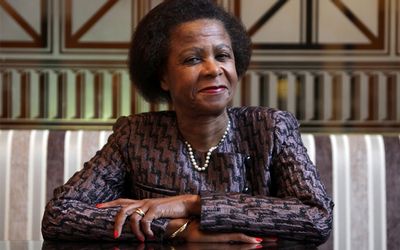
Mamphela Ramphele. Picture: SUNDAY TIMES
IT WAS one of the worst-kept secrets of South African politics, yet Agang SA leader Mamphela Ramphele’s description of her decision to stand as the Democratic Alliance’s (DA’s) presidential candidate in the upcoming election as "an astonishing moment" in the country’s history is strangely apt.
The combination of individual characters, movements and histories that will make up the new-look official opposition once the two parties’ joint technical committee has thrashed out the mechanics of the merger is indeed fascinating, even by comparison with the unlikely mix of bedfellows that make up the African National Congress’s (ANC’s) own broad church.
From New Nationalists to old-style liberals, economic libertarians, members of the socially conservative Cape coloured communities and emerging African middle class, freshly graduated young "Clever Blacks" and the remnants of the Black Consciousness movement of old. Who would have thought they would ever have enough in common to contemplate a political alliance to fight an election on the same side?
It is truly amazing that a political landscape that seemed so moribund a matter of months ago, trapped in the structures, mind-sets and prejudices of the past despite the democratic revolution that turned South Africa on its head in 1994, is now so full of potential and open to constructive change. And that applies as much to the DA as any other party.
Make no mistake, while Dr Ramphele’s little diversion with Agang exposed her weaknesses as a political leader, she remains a formidable woman who still has much to offer South Africa in a structured and supportive environment where her strengths and boundless energy can be channelled constructively.
Lest we forget, this is a woman who — through sheer strength of character and a refusal to be defeated by the apartheid regime — not only continued the community healthcare work she had started in King William’s Town after being banished to the then Tzaneen, but against all odds secured funding and expanded the network of clinics she set up to serve the rural poor.
Just as importantly, she has strong academic, institutional, charitable and business credentials through the University of Cape Town, the World Bank, the Nelson Mandela Children’s Fund and numerous company directorships. And she is a black woman. Traits that should not be underestimated as factors influencing the newly merged structure’s ability to attract voters who might otherwise not bother. Male domination — even blatant misogyny — is as much a problem in the ANC as it is in South African society, and the female vote has long been taken for granted by political parties.
The combination of strong and assertive women — Dr Ramphele, Helen Zille, Lindiwe Mazibuko and Patricia de Lille — in key leadership positions in the opposition could be a compelling one for younger voters in particular, even when their equally competent chromosomally-challenged party colleagues are excluded from the equation. Include those skills and the "government-in-waiting" proposition starts to look like more than wishful thinking.
Their abilities, histories and potential constituencies could all be complementary, a situation that might, if managed carefully, produce a whole that exceeds the sum of its parts. One example is party funding, an issue that is a constant headache for all political parties but especially the opposition in South Africa under ANC hegemony.
The DA has been relatively successful in keeping itself going through individual and corporate donations, but Dr Ramphele has the potential to open up new sources of foreign cash that go way back to the Tzaneen days and would probably not have contemplated contributing to the DA’s coffers before. Similarly, local corporations that might otherwise have been hesitant to be seen supporting a white-dominated opposition could be more inclined to back a more representative coalition that is also more business-friendly than the incumbent government.
However, for all the possibilities that have been created through the merger there are plenty of potential obstacles. The diversity of the interest groups represented by the new party is as much a threat to cohesion as an expansion of its experience and skills base. Just as the ANC is struggling to maintain unity and prevent a descent into destructive factionalism, so there is every likelihood of fierce disagreements and culture clashes within the new DA, especially over the way Dr Ramphele has been parachuted into the leadership structure.
Ms Zille’s characterisation of the party’s leadership as being drawn from across the political spectrum but sharing the same values is encouraging as far as it goes, but in the real world a shared "belief in an open-opportunity society for all, characterised by non-racialism, a market economy, human rights and prosperity for every South African" is unlikely to be enough to prevent intraparty rivalries.
The ANC — even a divided and rudderless ANC that appears captive to a charismatic but fatally flawed leader and incapable of addressing the issues that are dragging it and the country down — will still be a formidable electoral opponent once its campaign gets going and the energy expended on establishing factional positions is focused on harvesting the vote. It has shown that it can also be ruthless when threatened, which is undoubtedly how Dr Ramphele’s move will be interpreted. She and her new comrades in the DA had better brace themselves, because the coming few months will not be pretty.
But if we want to live in a functioning democracy that responds to the needs and aspirations of all, witnessing the stomach-churning sausage-making process is unavoidable. The "normalisation" of our society in the wake of apartheid is an ongoing process, and this realignment of the political party structure is simply part of that.


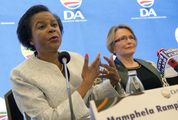

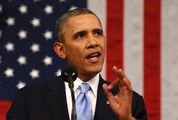



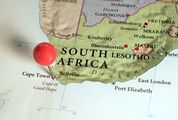

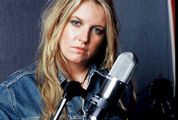

















Post a comment